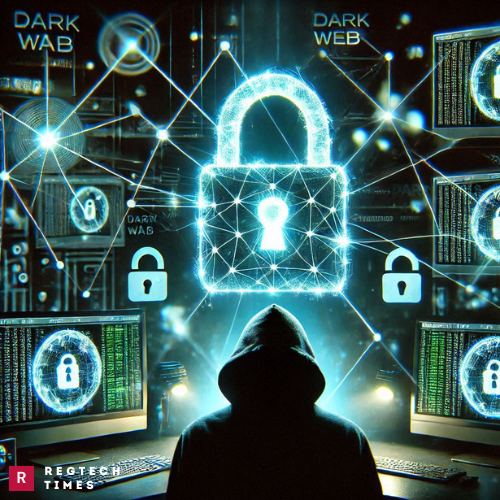In a major move against cybercrime, the United States has charged a dual Russian and Israeli national for his involvement as a developer in one of the world’s most dangerous cybercriminal organizations, known as LockBit. The accused, who is 51 years old, was arrested in Israel earlier this year and is now awaiting extradition to the United States. He is accused of building and maintaining the software that enabled LockBit’s massive attacks on thousands of victims globally. These attacks, which began in 2019, caused billions of dollars in damage, affecting a wide range of organizations, from schools and hospitals to large corporations.
LockBit is a type of “ransomware” — malicious software that locks up a victim’s computer or network and demands a ransom to release it. The software developed by the accused was used by a group of cybercriminals to carry out these attacks, which have targeted both private companies and government organizations. The group’s victims span across 120 countries, with more than 2,500 companies being affected, including around 1,800 in the United States alone.
The ransomware group not only locks files but also threatens to publish stolen data unless victims pay. The accused developer is said to have been key in maintaining the infrastructure and the code that enabled LockBit to carry out these attacks, causing severe disruptions for businesses and individuals worldwide.
LockBit’s Devastating Reach and Impact
The LockBit ransomware group has been incredibly active, attacking both large multinational corporations and smaller, more vulnerable victims. The cybercriminals behind it have extorted over $500 million in ransom payments from their victims. The damage from these attacks goes beyond the ransom money, with victims also facing costs for recovering their data, restoring systems, and repairing their reputations. This has left many businesses, especially those with critical infrastructure like hospitals and schools, vulnerable to huge financial losses and delays.
Ransomware Mastermind Mikhail Matveev Arrested in Russia
The accused was a developer for LockBit, and his role was to create and maintain the malicious code used in these attacks. He is alleged to have helped develop tools that disabled security measures, deployed malware to victim computers, and printed ransom notes on connected printers. By doing this, he made it easier for the group’s affiliates to carry out attacks and demand payments. He also provided technical support and guidance to other members of the group.
The evidence against the accused includes important documents found on his computer. Authorities discovered that he had access to administrator credentials for LockBit’s control panel, which was a critical tool used by the group to manage attacks and interact with affiliates. These documents also revealed how the group used dark web websites to coordinate and communicate, further showing the developer’s involvement in the operations of the group.
Global Cooperation Leads to Arrest
The arrest of this developer is part of a larger international effort to shut down the LockBit ransomware group. The investigation has been a result of collaboration between law enforcement agencies around the world, including the United States, Israel, the United Kingdom, and France. Through these joint efforts, investigators have been able to identify key members of the group, including the developer, and disrupt some of the infrastructure that LockBit relied on to carry out attacks.
Global Crackdown on LockBit Ransomware: Arrests, Server Seizures, and Financial Sanctions
As a result of these actions, the LockBit ransomware group has faced significant setbacks. Their ability to carry out attacks has been greatly reduced, and several of the group’s leaders have now been arrested or charged. This has made it harder for them to operate, and it sends a clear message to other cybercriminals that law enforcement agencies are actively working to bring them to justice.
The efforts to bring the accused to the United States show how serious the authorities are about tackling cybercrime. By arresting and charging those responsible for developing and running ransomware groups like LockBit, law enforcement hopes to reduce the number of cyberattacks that affect businesses and individuals globally. The cooperation between countries and agencies has played a key role in identifying and apprehending key figures in the group.
In this case, the United States is determined to hold those behind the devastating ransomware attacks accountable. The developer’s arrest and extradition proceedings serve as a reminder that cybercriminals can be tracked down and prosecuted, no matter where they operate from.


